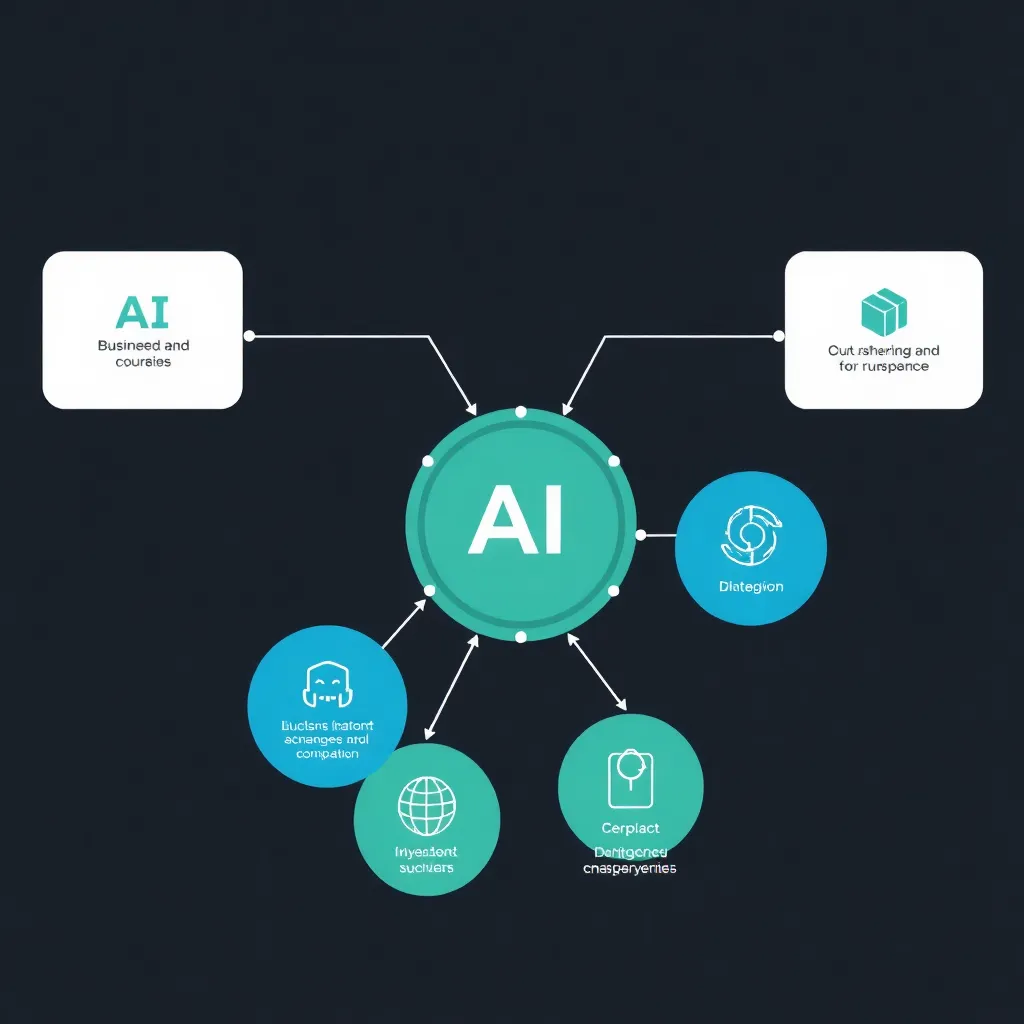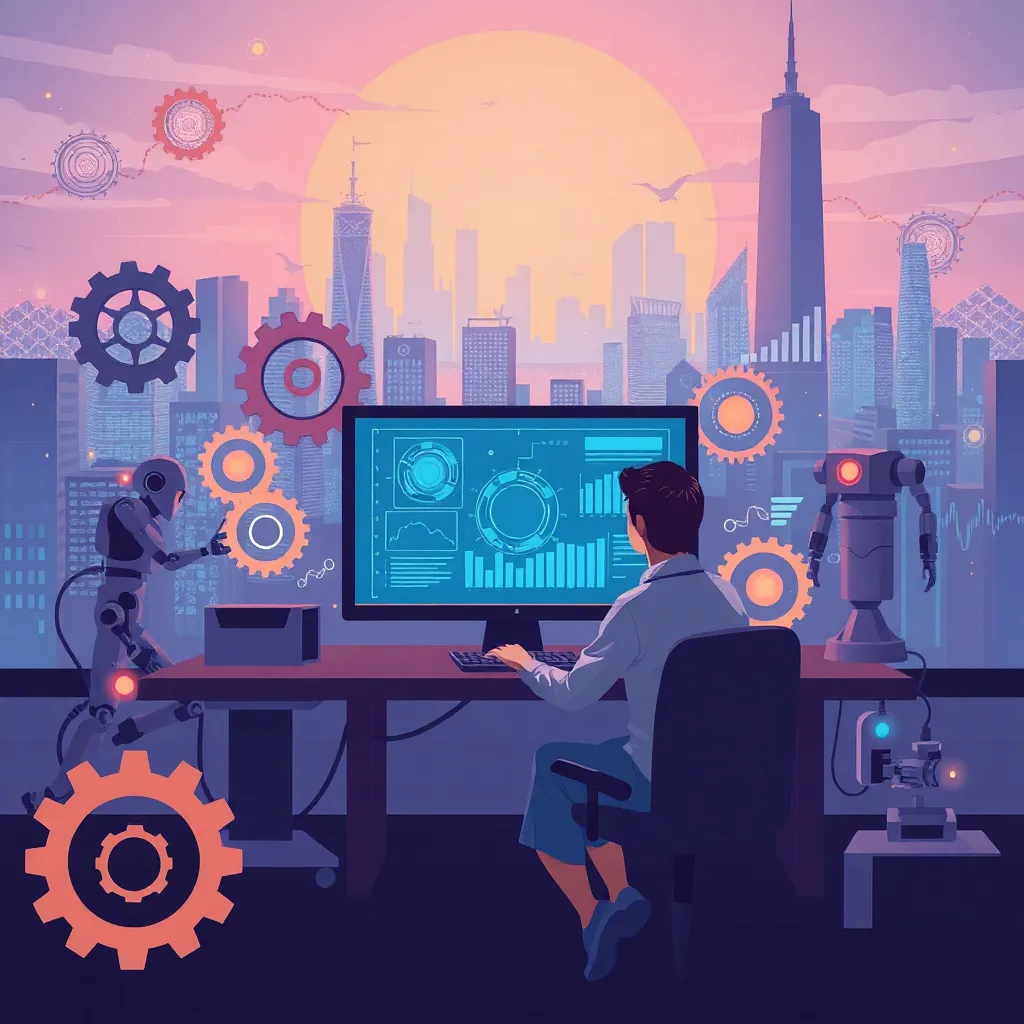With the ability to process vast amounts of data at incredible speeds, AI automation has become an indispensable tool for businesses and individuals alike. By automating repetitive and mundane tasks, professionals can free up time to focus on high-value tasks that drive innovation and growth. According to a report by McKinsey, AI has the potential to automate up to 45% of repetitive tasks, resulting in significant productivity gains.
Moreover, AI-powered automation can help reduce the risk of human error, ensuring accuracy and consistency in tasks such as data entry, bookkeeping, and customer service. This not only saves time but also reduces the financial burden associated with correcting mistakes. As a result, professionals can redirect their energy towards strategic decision-making, creativity, and problem-solving.
The impact of AI automation extends beyond individual productivity, as it can also have a profound effect on the overall economy. A study by PwC estimates that AI could contribute up to $15.7 trillion to the global economy by 2030, with automation playing a significant role in driving this growth. As AI continues to evolve, it’s essential for professionals to stay ahead of the curve and leverage its capabilities to maximize their earning potential.
The Power of AI Automation
Automation through AI is revolutionizing the way businesses operate by taking over mundane tasks, allowing entrepreneurs and professionals to redirect their attention to high-impact activities. This shift in focus enables them to drive revenue growth, increase profitability, and make strategic decisions that propel their organization forward.
By automating repetitive tasks, businesses can significantly reduce the time and resources spent on administrative duties, freeing up bandwidth for more creative and innovative pursuits. This, in turn, can lead to the development of new products, services, and processes that give companies a competitive edge in their respective markets.
According to a report by McKinsey, up to 45% of work activities can be automated, highlighting the vast potential for AI-driven automation to transform the way businesses operate. By embracing this technology, entrepreneurs and professionals can unlock new levels of productivity, efficiency, and innovation.

Streamlining Tasks with AI
Administrative tasks are a necessary evil for any business, but they can be a significant drain on resources. Data entry, bookkeeping, customer service, and marketing are just a few examples of tasks that can consume a large amount of time and energy. However, with the advent of AI automation, businesses can now free themselves from these mundane tasks and focus on more critical areas.
By automating administrative tasks, businesses can redirect their resources towards areas that drive growth and revenue. For instance, product development can be accelerated, sales teams can be empowered to close more deals, and customer engagement can be enhanced through personalized interactions. According to a report by McKinsey, companies that automate administrative tasks can see a significant reduction in operational costs and a boost in productivity.
The benefits of AI automation extend beyond just cost savings and productivity gains. By automating routine tasks, businesses can also reduce the likelihood of human error, improve compliance, and enhance customer satisfaction. For example, AI-powered chatbots can provide 24/7 customer support, answering frequent queries and freeing up human customer support agents to focus on more complex issues.
As AI technology continues to evolve, we can expect to see even more innovative applications of automation in the business world. With the ability to automate administrative tasks, businesses can unlock new levels of efficiency, innovation, and growth. According to a report by Gartner, by 2025, 50% of all new applications will be built using AI and machine learning, further underscoring the importance of embracing automation in business operations. (Gartner)
Maximizing Earning Potential with AI
One of the most significant benefits of AI automation is its ability to boost productivity and efficiency. By automating repetitive and time-consuming tasks, professionals can free up a substantial amount of time that can be better spent on high-revenue activities. This, in turn, can lead to a direct increase in earning potential, as individuals can take on more clients, projects, or customers, resulting in higher revenue and profitability.
According to a study by McKinsey, automation can increase productivity by up to 30% in some industries. This increased productivity can then be leveraged to focus on high-value tasks that drive revenue growth. For instance, a marketing professional can use AI to automate data analysis and instead focus on developing targeted campaigns that drive sales.
The impact of AI automation on earning potential is not limited to individual professionals. Businesses that adopt automation can also experience significant revenue growth. A study by Accenture found that companies that invest in AI and automation can expect to see a 38% increase in revenue by 2022. This is because automation enables businesses to operate more efficiently, reduce costs, and improve customer satisfaction, ultimately leading to increased revenue and profitability.

Real-World Examples of AI Automation
The integration of AI automation in various industries has led to significant improvements in efficiency and productivity. Chatbots and virtual assistants, for instance, have enabled businesses to provide 24/7 customer support, reducing the workload of human customer service representatives and allowing them to focus on more complex issues. According to a study by Gartner, by 2022, 70% of white-collar workers will interact with chatbots daily.
AI-powered project management tools have also revolutionized the way teams collaborate and manage projects. These tools use machine learning algorithms to analyze data, identify patterns, and provide insights that enable project managers to make informed decisions. By automating repetitive tasks and streamlining workflows, AI-powered project management tools have increased productivity and reduced project timelines.
Companies like Amazon, Google, and Microsoft are at the forefront of AI adoption, leveraging the technology to drive innovation and growth. For example, Amazon’s Alexa virtual assistant has enabled the company to expand its presence in the smart home market, while Google’s AI-powered Google Assistant has improved the search engine’s ability to understand natural language queries. Microsoft, on the other hand, has integrated AI into its Dynamics 365 platform, enabling businesses to automate sales, marketing, and customer service processes.
Conclusion: Unlocking Your Earning Potential with AI
The integration of AI automation in various industries has become a crucial step in staying competitive. According to a report by Gartner, 70% of organizations are already using AI in some form, and this number is expected to rise in the coming years. By adopting AI automation, professionals and entrepreneurs can streamline their workflows, reduce manual errors, and increase productivity.
AI automation also enables businesses to make data-driven decisions, identify new opportunities, and improve customer experiences. With the ability to process vast amounts of data quickly and accurately, AI algorithms can provide valuable insights that humans might miss. This, in turn, can lead to increased revenue, improved brand reputation, and a competitive edge in the market.
Moreover, AI automation can help professionals and entrepreneurs achieve a better work-life balance. By automating repetitive and mundane tasks, they can focus on high-value tasks that require creativity, empathy, and strategic thinking. This can lead to increased job satisfaction, reduced burnout, and a sense of fulfillment.

